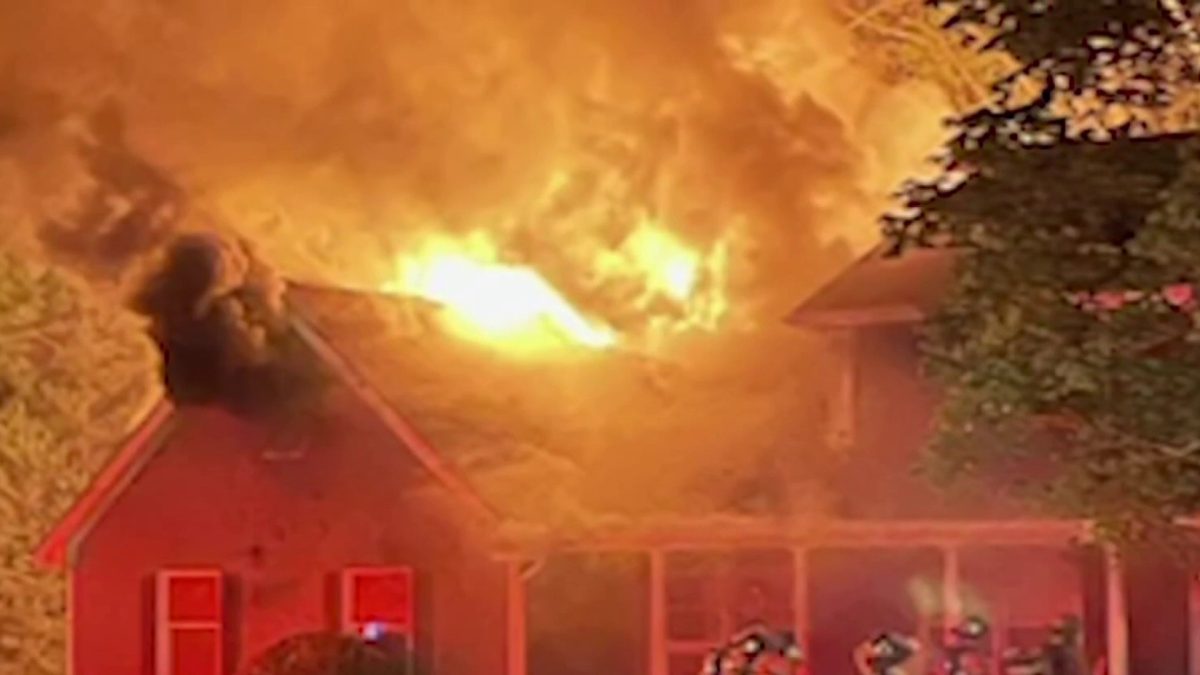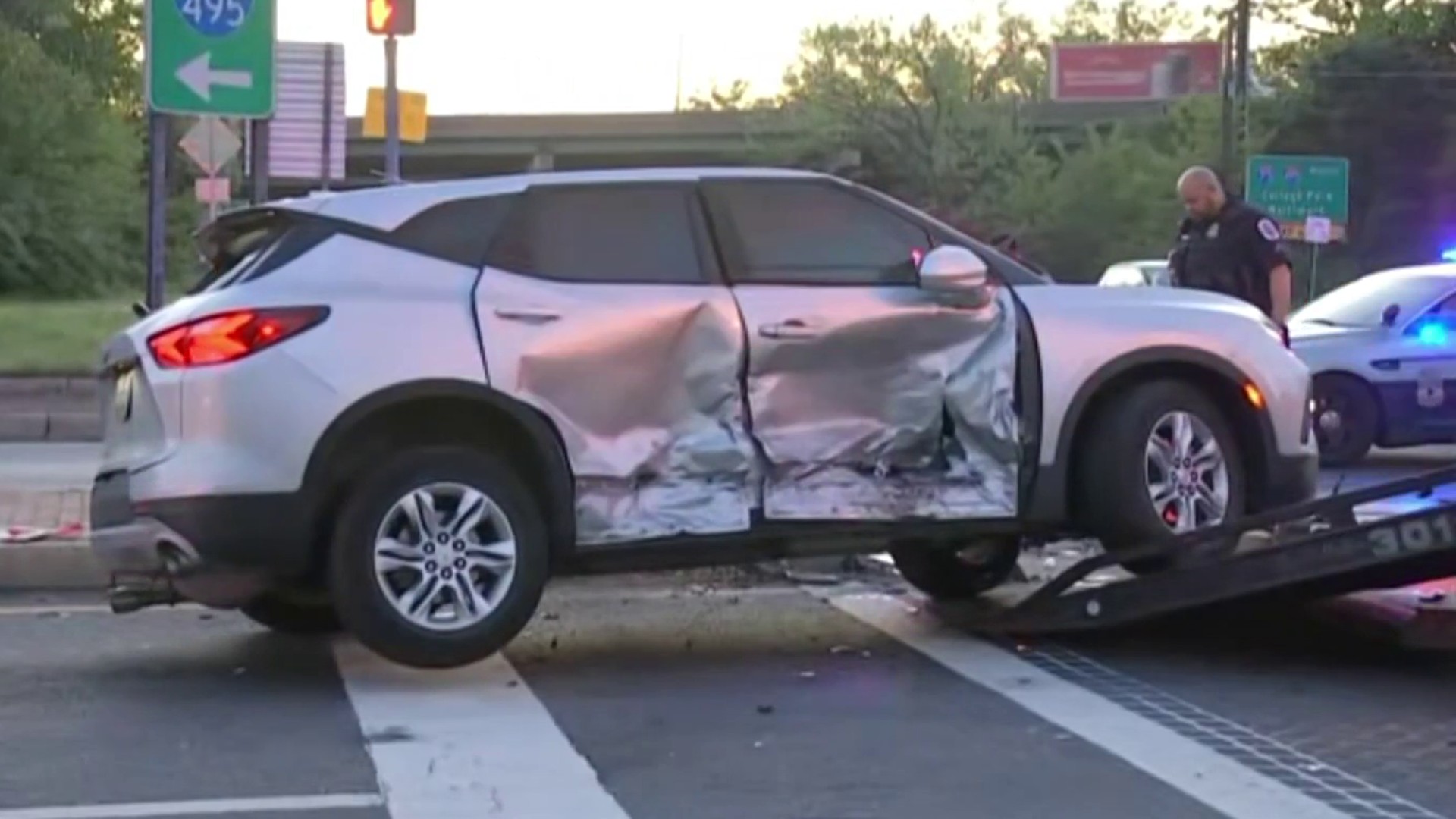The civilian truck driver who killed a sailor aboard a destroyer at the world's largest naval base was a convicted felon from Virginia, according to prison records and the Navy.
The Navy identified the shooter Thursday as Jeffrey Tyrone Savage. Court records show Savage was charged in the 2005 shooting death of Maurice Griffin, a 30-year-old Chesapeake resident, in Charlotte, N.C. They were driving from Georgia to Virginia when they fought over a handgun. Savage shot Griffin and left his body on the side of an Interstate 85 onramp. Police were called when someone passing by saw Griffin's body, originally thinking it was a deer.
Prosecutors planned to seek the death penalty against Savage if he didn't settle the case with a guilty plea, according to court records. Savage entered a guilty plea to voluntary manslaughter in February 2008 and was released from prison at the end of 2009.
Including jail, he was behind bars fewer than six years for the crime. A decade earlier he spent time in prison for possession of crack cocaine with intent to distribute.
Savage was killed by Navy security forces Monday night aboard the USS Mahan after he took a gun from a petty officer who was on watch for the ship and used her gun to shoot Master-at-Arms 2nd Class Mark Mayo, who was providing security at Naval Station Norfolk.
Military officials said autopsies had been done on Mayo and Savage. It could be weeks before autopsy results are provided to investigators. Results will include a toxicology report that would indicate whether there were any drugs or alcohol involved, Stone said.
Navy officials have said there's no indication the attack was planned or had any link to terrorism. Navy investigators have also said there's no indication Savage had any previous relationship with the ship or anyone on it.
Officials were still searching for answers about why the 35-year-old Chesapeake resident drove his tractor-trailer cab onto base, walked onto a pier and up a ramp toward the ship before being confronted by security. The Navy has said Savage shouldn't have been allowed on the installation the night of the shooting, and investigators were looking into why he was let on the base.
The credential Savage used to gain access -- a Transportation Worker Identity Credential -- is issued by the Transportation Security Administration and is valid for five years. In the news release, the Navy said the card alone doesn't authorize base access. People also have other documents to gain entry, including a manifest of items to be delivered or a receipt indicating an item to be picked up, said Beth Baker, a spokeswoman for the Norfolk-based Navy Region Mid-Atlantic.
Local
Washington, D.C., Maryland and Virginia local news, events and information
People with criminal records for certain crimes are allowed to have a TWIC card, as long as they have been out of prison for at least 5 years, according to TSA's website. However, applicants can also apply for a waiver.
Since the program started in 2007, about 132,000 people were disqualified and about half of those who appealed or asked for waivers received them. The Navy said Savage worked for Majette Trucking, which is based in Rich Square, N.C. A message left with the company Thursday was not immediately returned. According to federal records, the company has four drivers and four trucks that carry refrigerated goods. The company is licensed for interstate business.
On Friday, U.S. Sen. Mark Warner, D-Va., wrote a letter to Navy Secretary Ray Mabus and Homeland Security Secretary Jeh Johnson urging they conduct a review of security procedures on military bases.
“I have grave concerns about the safety and effectiveness of the TWIC program,” Warner wrote.
Warner said the TWIC program has been plagued by problems since its inception. He noted that a 2011 Government Accountability Office report said that weaknesses in the program's enrollment, background checking and use, "limit the program's ability to provide reasonable assurance that access to secure areas … is restricted to qualified individuals.”
Warner sent Mabus and Johnson a list of questions he wants answered in a briefing, including whether naval security personnel appropriately cleared Savage and properly followed security protocols.
“Our military men and women who willingly serve in harm's way overseas should have a reasonable expectation of safety on a U.S. military facility here at home,” Warner wrote.
Savage and Griffin had been best friends before the shooting in North Carolina, according to Griffin's aunt, Vanessa Griffin.
“He killed my nephew and he was supposed to be his best friend,” she said. “The saddest part about it is he shot him in the head and ... put him out on highway 85. So that tells me a lot.”
After Navy officials identified Savage as the shooter, Vanessa Griffin relived the painful memories of her nephew's death. She said she had met Savage on numerous occasions and knew that he “was bad and did a lot of things.”
“When it came to Jeff and what I've heard about him, anything was possible for him to do,” said Vanessa Griffin, who lives in Chesapeake. “He would have went to any extreme to whatever he had to do. To me, he was a dangerous man.”
Savage was sentenced in Virginia in 1998 for possession with intent to distribute crack cocaine. He served nearly five years in federal prison before transferring to a halfway house and home confinement in the Raleigh, N.C., area, according to Chris Burke, a spokesman for the Federal Bureau of Prisons. Savage also spent two years in federal prison beginning in 2010 after his supervision was revoked and was transferred to a halfway house in February 2012, Burke said.
Virginia regulatory filings show Savage had registered a limited liability company in his name last year. The company also received a business license in the city of Chesapeake for lawn care and debris removal service, according the office of the city's commissioner of revenue.
The Virginia Department of Motor Vehicles could not say whether Savage had a valid commercial driver's license, citing privacy laws. The license would have allowed Savage to drive a commercial vehicle such as a tractor-trailer.
PREVIOUS STORIES:



